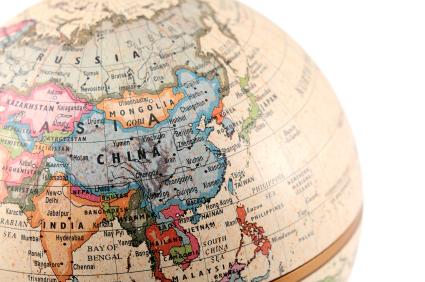

In the short term, Humer predicts that China will go through a very difficult time but he has no doubt that the Asian giant will come out of this economic crisis together with the rest of the Asian markets in the long run. How long the crisis will last depends “on what the global economic situation is going to be.”
Right direction
The Chinese government seems to be doing the right things in response to the economic crisis, Humer observes, but he remains cautious because China may not be as transparent as western countries.
“The reduction of interest rates and the initiation of land reforms are in the right direction,” he says.
The Chinese government is also prepared to invest significant amounts of money in the development of infrastructure such as roads and railway systems, and it is also prepared to stimulate domestic demand. “The government is doing the right thing because only domestic demand can replace the slack in exports,” he says.
Challenges to recovery
How long will it take for these measures to take hold? Humer says he doesn’t know. But he also sees a paradox which could hinder the progress of China’s economic recovery.

The Doha round of global trade negotiations is in great danger of failing, according to Humer. “We can talk a lot about bilateral agreements for a long time – but what we need is a global trading arrangement. In the medium term, all bilateral arrangements are not compensating for a global development and trade agreement.”
Riding the crisis in the financial services sector
For Simon Machell, CEO of Aviva in the Asia-Pacific region, the current crisis is typified by a huge loss of confidence by customers in the financial services industry and in the products they offer. Customers will be taking a much closer look at the organisations they place their money with.

“The challenge that we have is how to restore confidence and how we demonstrate stability in what we are doing. The industry is under the microscope – people are looking for our solvency position and for comfort in terms of where we are. They will be looking more stringently at our balance sheets, the greater disclosure … to give in terms of overall financial position.”
Machell believes market fundamentals remain good in Asia because a large number of people are looking to save. In addition, the region’s demographics are driving growth prospects. “India and China are simply driven by population growth. People are getting wealthier … While there are some challenges in the short term in terms of confidence, growth prospects in the short and medium term continue to look quite good.”
Products need to change, Machell says. People have had a very good run in terms of investment-related products. That has now changed and people are looking for guarantee-type products; in effect, more safety. “Customers are pretty short term in their outlook and they also look at things that give them a level of security. Their appetite for risk has also gone down.”
Re-examining corporate governance
Greed and dishonesty brought about the financial crisis, says Gautam Banerjee executive chairman of PricewaterhouseCoopers. It’s not about people failing to follow regulations or ratings agencies getting it wrong.

It all goes back to the culture of the organisation, Banerjee says. “What we need is a balanced scorecard where you take the company with you, looking at all stakeholders’ interests. Doing the right thing based on the principles such as asking what the product will do to the individual rather than just meeting the sales target. Board members should ask questions about selling practices. Get more ethical training into business school syllabus, and have balanced scorecard type of incentives and evaluation of the individual.”
The financial crisis will be a tipping point, he says, where governance will be re-examined.
Asia becoming the world’s innovation engine
More than ever companies need to be innovative. So can Asia become the world’s innovation engine, and not merely be the driver of economic growth? “We will see innovation moving to Asia for things that Asian firms by mindset and culture are very good at doing,” says Phil Anderson, INSEAD Professor of Entrepreneurship.

Anderson recounts interesting technology coming out of the smaller innovative firms. Seven years ago the entire top management team of Texas Instruments India quit and started ITTIAM – ‘I think therefore I am’ - which produces intellectual property for digital signal processes. In the Philippines, an entire mobile phone-minute economy has emerged, not using cash but by beaming mobile phone ‘minutes’ to one another and in China, a group of entrepreneurs designed the technology to turn any USB device into a key to open your door, hotel room or car.
“Western companies can create more innovation within themselves by tapping into that ecosystem and attracting the most innovative, younger and smaller Asian firms to become part of their platform and their overall innovating community,” Anderson says.
-
View Comments
-
Leave a Comment



No comments yet.